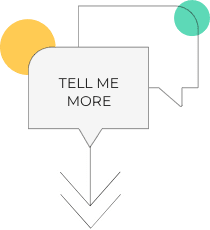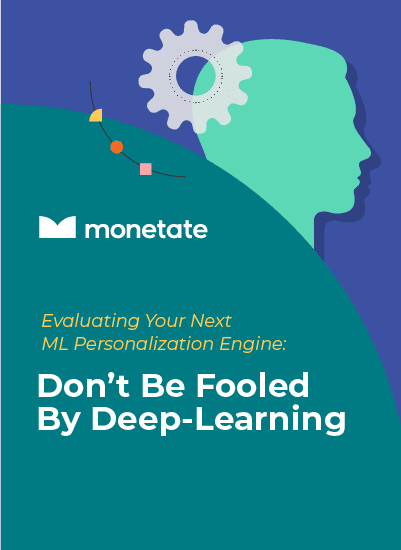
How to Choose the Best Ecommerce Personalization Software
Retailers—whether in the B2B or B2C space—who want to deliver individualized shopping experiences at scale need to know how to choose the best eCommerce personalization software that fits their organization.
What is Ecommerce Personalization and Why Is It Important?
Individualization — also called 1-to-1 personalization — is an eCommerce personalization technique that retailers use to automatically optimize customer experiences for each person. Retail brands aspire to achieve individualization because it significantly boosts revenue, increases customer loyalty, and improves the overall experience for customers.
Individualization is becoming more important to retailers who want to differentiate themselves from competitors, but it’s also an effective strategy for creating optimal shopping experiences for customers.
According to McKinsey, 71% of consumers expect to receive personalized experiences from companies. Getting it wrong can have detrimental consequences, driving customers to seek out other retailers or even completely abandon a brand.
But, when done well, individualized personalization pays off for retailers.
The benefits of ecommerce personalization are important for both B2C and B2B eCommerce experiences. Just like consumers in the retail shopping space, B2B buyers want their buying process to be easy, personalized, and relevant.

How To Pick the Best Ecommerce Personalization Tool
Choosing an eCommerce personalization platform can be daunting — there are a lot of choices. Here are a few key attributes that we believe are crucial to any personalization software, that should help narrow down the options.
Open Architecture
Open architecture takes an API-first approach that enables developers and tech teams to easily integrate personalization into the customer shopping journey. An open architecture platform means that retailers can pull in all customer data, regardless of where it sits, and use this data to personalize customer experiences across the entire shopping journey.
Real-Time Capabilities
Real-time measurement tools enable retailers to test, monitor, and act on the results of customer experiences quickly. Having access to real-time data means that retailers can better understand if an experience is working (or not) and optimize their approach accordingly.
Real-world example: Reebok used rich customer insights in real time to drive deeper website engagement during Black Friday and create relevant, one-to-one customer journeys that increased revenue per session, add-to-cart rate, and improved website clickthrough rates. Reebok’s team used explicit and implicit consumer data from various sources, effectively delivering unique personalized experiences to customers visiting their home page and product pages. They also designed a unique experience for returning customers. Using real-time data, Reebok was able to increase website performance and create a positive cycle that drove continued improvement.
AI-Driven Personalization Engine
An AI-driven personalization engine gives retailers the ability to create 1-to-1 personalization experiences at scale. AI and machine learning engines can analyze data from many sources (and for large numbers of customers), then automatically determine what experience each customer should get based on this huge volume of data. This technology is what enabled both Reebok and Jelly Belly to provide individualized experiences across multiple website and touchpoints even though both companies have a very large customer base. AI facilitates and enables scalability.
One key example: AI-powered personalized product recommendations are among the top AI-focused trends that are reshaping ecommerce. Comprehensive omnichannel personalization, powered by machine learning, creates contextually relevant product recommendations for shoppers as they shop across devices, channels, and throughout multiple sessions.
Personalization that extends across physical and digital channels means that in-store associates can make product recommendations based on a customer’s digital purchase and browsing history. It can also enhance omnichannel fulfillment strategies (e.g., buy online pick up in store, ship-to-store, and returns).
Evaluate Your Next Personalization Engine
To make a digital strategy scalable and cost effective, companies need to combine a variety of different components across data and technology to deliver the best possible customer experience.
The glue that binds these components is personalization at scale – the ability to deliver personalized experiences to many people across channels.

Omnichannel Personalization
Omnichannel personalization is a top eCommerce software feature that enables retailers to customize content at every touchpoint, whatever system is managing it, including web, app, or in-store. At its core, a good shopping experience is one where the buying journey and customer-retailer relationship is consistent across all interactions, touchpoints, and channels whether they’re digital, in-store, in email, or on a mobile device (and everywhere in between).
Your personalization platform and strategy must consider all customer interactions and touchpoints, with the goal of creating a unified experience that makes the customer feel truly recognized. The benefits of omnichannel personalization include the ability to:
- Personalize products, content, and copy on any customer channel whether it’s online or offline.
- Link a customer’s online behavior to their in-store behavior by notifying local stores via their clienteling app when a particular user browsed specific items online and delivering personalized experiences or incentives to encourage a purchase.
- Link a customer’s online browsing behavior to their app and thus personalize the in-app experience (e.g., by triggering relevant push notifications, leveraging geofencing, etc.)
- Enable a POS feedback loop ensuring that online product recommendations and email promotions can be individualized to reflect in-store purchases.
Marketer-Friendly
The best eCommerce personalization software has robust, marketer-friendly reporting capabilities. A marketer friendly personalization engine means that retailers can create a full feedback loop where the engine and the marketer learn from the results of different experiences and strategies. Powerful platforms should incorporate audience analytics features that enable deep customer insights which leverage AI to help unveil deeper understandings of your customer base.
Another important marketer friendly feature is the ability to easily connect your existing tech stack to your eCommerce platform, making your data and technology more capable of personalizing customer experiences and understanding customer behavior.
Why Choose Monetate’s Ecommerce Personalization Software
Whether you’re looking for a B2B or B2C eCommerce solution—or one that seamlessly handles both—choosing the best eCommerce personalization software for your organization is easy when you keep the above attributes in mind.
Monetate’s eCommerce personalization platform enables retailers to easily test, optimize, segment, and target the buying journey, creating true 1-to-1 experiences for shoppers. With a single personalization solution, marketers have the flexibility to leverage innovative technology to improve the customer experience across web, email, mobile apps, in-store, and other touch points.
See Monetate in action and discover why we’re recognized by key industry analysts as the leading personalization software and are used by over 1000 brands to help shape seamlessly personalized customer experiences that deliver results.
